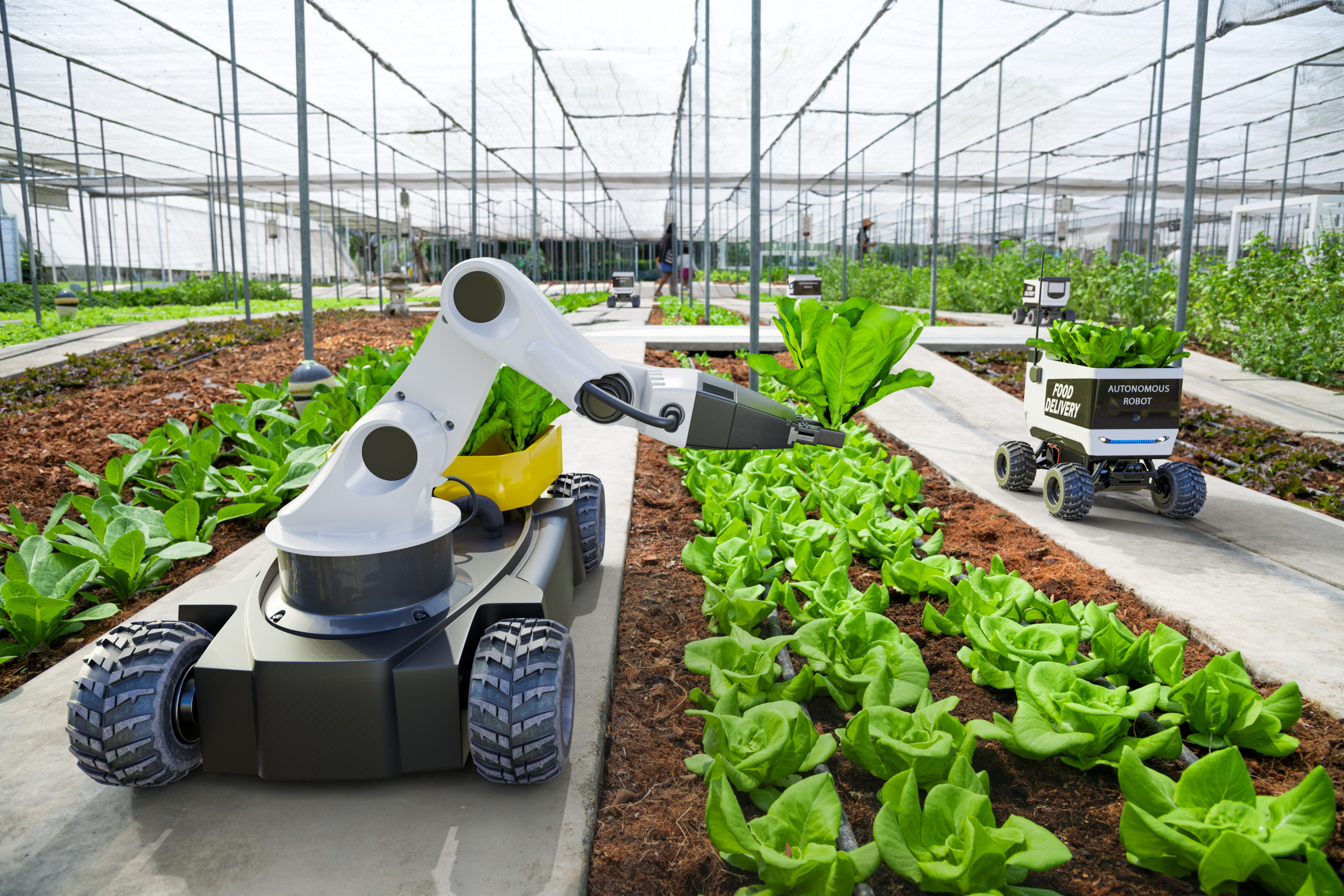Accelerating the adoption of robotics and automation in agriculture

Around 60,000 migrant workers used to come to the UK each year for seasonal agricultural work like fruit picking. But in 2020, Brexit and COVID-19 meant that traditional migrant workers struggled to enter the UK. The sector suffered from severe staff shortage.
One of the solutions to this challenge is automation and robotics. Innovate UK KTN worked with partners and the community to accelerate the adoption of automation and robotics in agriculture. Here’s a summary of what we’ve worked on and the impact it has had on the sector.
The focus on AgriTech isn’t new
Before 2020, the government had already recognised the need to boost AgriTech development and adoption by the agricultural sector. This was reflected in funding including the £160M AgriTech Strategy (July 2013) and the £90M Transforming Food Production Challenge.
The Transforming Food Production Challenge fast-tracked innovations such as:
- Automated machines growing an arable crop remotely (Hands Free Farm, by Harper Adams University, £16M funding)
- Electrical weed control across different crop types and weeding platforms (Small Robot Company, £0.7M funding)
- Prototype for Volatile Organic Compounds (VOC) sensor-based products to access soil health on-farm (Small Robot Company, £1M funding)
- An autonomous soft fruit farming system (Robot Highways, led by Saga Robotics, £2.4M funding).
Automation and robotics are a strong solution
At Innovate UK KTN, we often turn to innovation when it comes to solving challenges. Having worked to bring the agriculture and robotics communities together for years, we spotted an opportunity for robotics and automation to help solve this UK wide challenge.
The AgriFood, Enabling Technologies and Complex Systems teams at Innovate UK KTN came together and worked with leading innovators, the Lincoln Institute for Agri-Food Technology (LIAT) and Agri EPI. We joined forces to help accelerate the adoption of robotics and automation to meet the industry need and make the UK world leaders.
Listening to the community
In March 2020, we gathered 60 people from across the sector including growers, innovators and trade bodies to build a clear picture of the situation. We also ran online workshops focusing on soft fruit, field vegetables and top fruit, in addition to more general discussions.
Here’s a summary of the discussions, including the challenge faced by the sector and potential solutions.
The impact of labour shortages or changes to the labour supply on businesses
- There was palpable concern from the Agricultural sector over the next 3 to 6 months.
- They were actively looking for solutions including automation.
- They were anticipating that automation would mitigate the negative impact of staff shortages in 12 to 18 months.
The support needed to reduce the short and medium term impact (other than sourcing new labour)
- Short term funding is needed to accelerate automation/innovation.
- There is a significant desire for cross sector collaboration.
- Technology solutions were required in the field and packhouse, within the following 12 to 18 months.
What is needed to accelerate the development of technology
- Short term and fast track funding is needed for innovation development, scale up and on farm support.
- The innovation sector requires access to larger pools of skilled Engineers. Expertise on testing and verification were also requested.
- Evaluation Sites. Tech companies require access to test beds and evaluation sites at growers.
- Multiple participants were seeking to collaborate with others, within and between the technology and agriculture sectors.
- Challenges to scale, including access to manufacturers and capital were brought up.
Technology providers made it clear that if they received support, the technology they are working on could be ready much quicker, jumping from 1-2 years to 6-12 months for some or even 6-12 months to 3-6 months for others.
The majority of farmers and growers said they were ready to adopt the technology.
The impact of our work
Thanks to our work, the government updated the scope of a funding competition called “Driving the Electric Revolution”. This meant that a consortium including the University of Lincoln and Saga, formed through the workshops, was able to apply. They received £300K to develop a low cost scalable electric hub motor that could be revolutionary for AgriFood robotics.
Throughout the process, we also supported two companies to apply skills and knowledge developed in the automotive industry to the AgriFood automation and robotics sector: Antobot and ZF. They both received funding from the Social Innovation Fund.
Bringing these people together also prompted some private investment. One individual invested £200K in a robotics company to help fast track their innovation. A soft fruit company invested £200K in a robotics project.
Our work helped shape the Farming Futures: automation and robotics funding competition (opens until 15 March 2023). As we found that challenges like this weren’t limited to horticulture, we encouraged the scope to include agriculture. Find out more about the competition here.
What next?
The Department for Environment, Food & Rural Affairs (Defra) published a review on automation in horticulture. Recommendations include a similar approach to the one we have taken: bringing together government and industry to drive adoption of proven technologies.
Click here to read the full review.
By continuing to collaborate and connect diverse people from across the Innovate UK KTN network, we can drive positive change and make a global difference.
There is clear role for automation and robotics to support the following United Nation Sustainable Development Goals:
- Zero Hunger (goal 2)
- Good Health and Well Being (goal 3)
- Industry, Innovation and Infrastructure (goal 9)
- Life on Land (goal 15)
Could 2023 be the catalyst for radical change in farm labour? If so, it could drive the UK to become world leaders in automated and robotic agriculture and help meet the demand to feed the world’s growing population.
If you are working on an innovative project around automation and robotics in agriculture and horticulture, funding is available for industrial research and experimental development via the Farming Futures: automation and robotics competition, closing on 15 March 2023.
If you want support to fast-track your AgriFood automation and robotics innovation, get in touch with Simon Baty.




